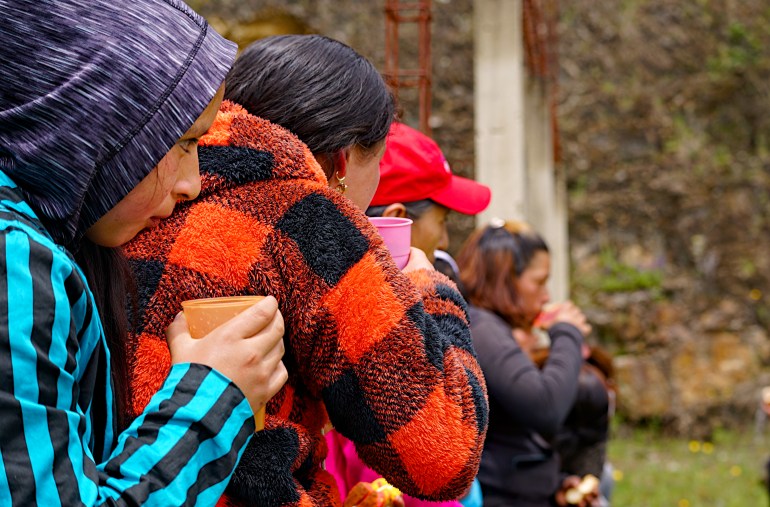Mining proponents are expecting to see an increase in activity under President Noboa, a right-wing candidate who won re-election in April.
In 2024, Noboa travelled to the World Exploration and Mining Convention in Canada and signed six agreements worth $4.8bn.
And just this month, Noboa issued a presidential decree that would dissolve the Ministry of Environment and fold its duties into the Ministry of Energy and Mining.
Critics warn these developments threaten to undercut environmental causes and the right for Indigenous communities to have prior consultation before development projects.
To prevent conflicts like Rio Blanco’s, experts emphasise that implementing these rights in good faith is key. They also say communities need more resources, so that mining is not the only way out of poverty.
“These places often have no government support, leaving people to fend for themselves,” said Patricio Benalcázar, a sociology professor and mining conflict researcher at the University of Cuenca.
“The government should create programmes that improve people’s lives, provide basic utilities, schools, healthcare — and should help create other ways for people to earn money, besides mining.”
Alfaro, however, believes that communities cannot rely on the national government’s support. Activists, nonprofits, universities and others need to step in.
“Río Blanco is the best example we have of a community working together to stop a big international mining project,” he said.
“But that doesn’t mean the next steps will be easy. How do you rebuild and heal families after the industry’s damage? For a small place like Río Blanco, they can’t do it alone.”
Community members, however, are taking small steps to begin healing the rifts the mining caused.
In May, Durazno — the local leader — organised a Mother’s Day event to bring together Rio Blanco’s residents.
A mother of four herself, she felt the holiday could be unifying. Still, the attendance was not what Durazno had hoped for.
As she watched a dozen children from pro- and anti-mining families play together in a sunlit courtyard, she reflected on the toll the conflict has taken.
“It took too much to drive mining out,” she said. “People are tired and don’t want to hear about mining any more. If the company comes back, I don’t know if we’d have the strength to take them on again.”
